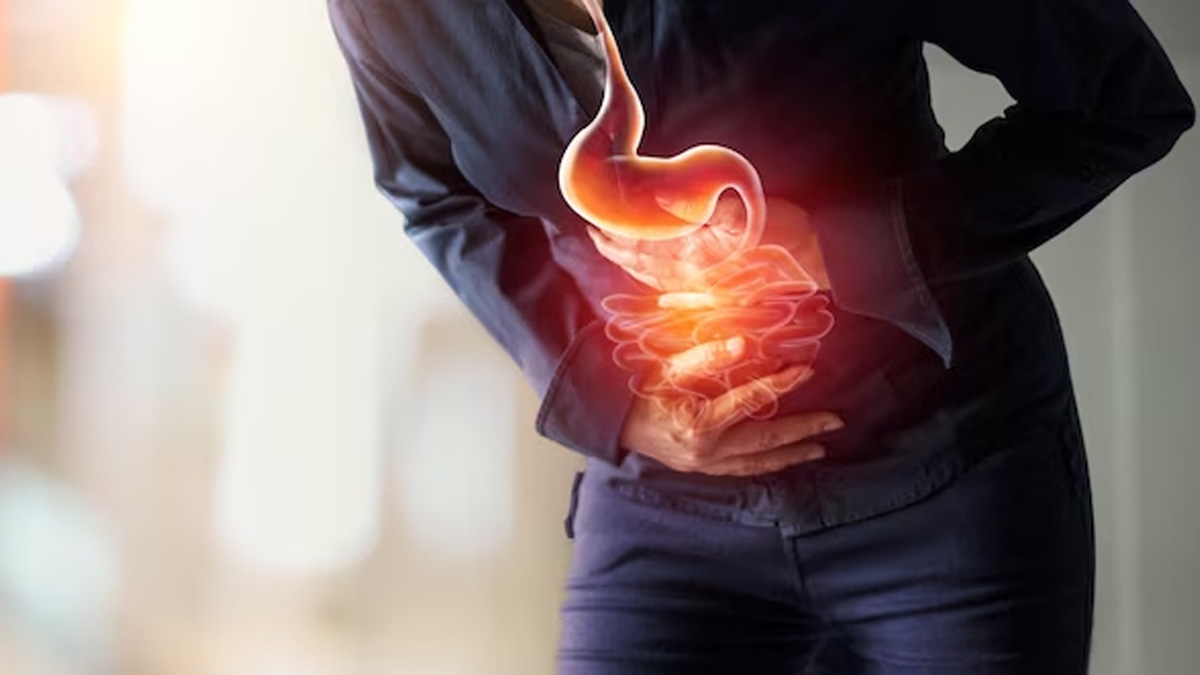
Cancer is one of the leading causes of death worldwide, accounting for nearly one crore deaths worldwide, as per the World Health Organization (WHO). While elderly people are at greater risk of developing most forms of cancers, younger people are becoming more prone to the disease in recent times.
Table of Content:-
A new study, published in August this year (2023) in JAMA Network Open, looked at the number of new cases diagnosed in people younger than 50 years between 2010 and 2019 and found that the rates of early-onset cancer went up by 0.74%. In addition, the researchers established that gastrointestinal cancers were not only the most prevalent, but it also had the quickest rise at a rate of 2.16% per year. In light of this, we at OnlyMyHealth spoke with Dr N Ramana Reddy, Consultant-Surgical Oncology, HCG MNR Cancer Centre, Ongole, to understand the reason behind this surge.
Also Read: Study Finds 4 Warning Symptoms Of Colon Cancer In Younger People; Expert Stresses On Early Detection
What Is Colon Cancer?

Colon cancer, also known as colorectal cancer, is a type of cancer that begins in the colon or rectum, which are parts of the large intestine. It basically starts when a polyp, a growth of tissue, starts to originate on the inner lining of the colon or rectum. It is important to note that not all polyps are cancerous but some can develop into cancer over time.
According to the WHO, colon cancer is the second leading cause of cancer-related deaths worldwide, accounting for more than 10.9 lakh new cases of colorectal cancer and more than 9.3 lakh deaths in 2020.
In India, the incidence rates of colon cancer in eight population registries vary from 3.7-0.7 per one lakh among men and 3-0.4 per one lakh among women.
Why Younger Population Are Becoming More Prone To Colon Cancer

While the majority of colorectal cancers occur in people older than 50, it is not just an old person's disease anymore. It can also occur in younger people. In fact, it has now become the third leading cause of cancer death in young adults and according to the Colon Cancer Coalition, about 20% of people diagnosed with colorectal cancer are between ages 20 and 54.
Dr Reddy says, "The exact reasons are unclear but lifestyle habits, diet consumption and genetics could play a major role."
The National Cancer Institute (NCI) quoted Kimmie Ng, MD of Dana-Farber Cancer Institute, explaining, "Although certain genetic conditions—like Lynch syndrome and familial adenomatous polyposis—raise the risk of developing colorectal cancer at a young age, only 10-20% of early-onset colorectal cancers are caused by inherited factors," adding that environment is the 'culprit' rather than something biological when the incidence of a disease alters by generation.
Early Symptoms To Note
According to Dr Reddy, colon cancer in its initial stages can be asymptomatic. However, certain warning signs to look out for are:
- Unexplained weight loss
- Fatigue
- Unexplained changes in bowel movements
- Abdominal pain or cramps
Also Read: Stages Of Colon Cancer: How Does It Affect Your Health?
Screenings For Early Diagnosis

Screening procedure choices depend on preferences by individuals and individual risk factors, says Dr Reddy.
One can opt for colonoscopy as it allows to detect and eliminate precancerous polyps or choose other screening procedures including fecal occult blood test and sigmoidoscopy.
The doctor recommends getting screened for colon cancer at the age of 50. For individuals with family history or any other risk factors, early screening is recommended.
How To Reduce Your Risk Of Colon Cancer
While there is no sure-shot way to reduce your risk of colon cancer, maintaining a healthy lifestyle, adopting a healthy and balanced diet which consists of equal amounts of vegetables, fruits, proteins, and limiting the intake of processed food and red meat can lower the dangers. Additionally, regular exercise and avoiding alcohol intake and smoking can reduce the risk of colon cancer.
Also watch this video
How we keep this article up to date:
We work with experts and keep a close eye on the latest in health and wellness. Whenever there is a new research or helpful information, we update our articles with accurate and useful advice.
Current Version